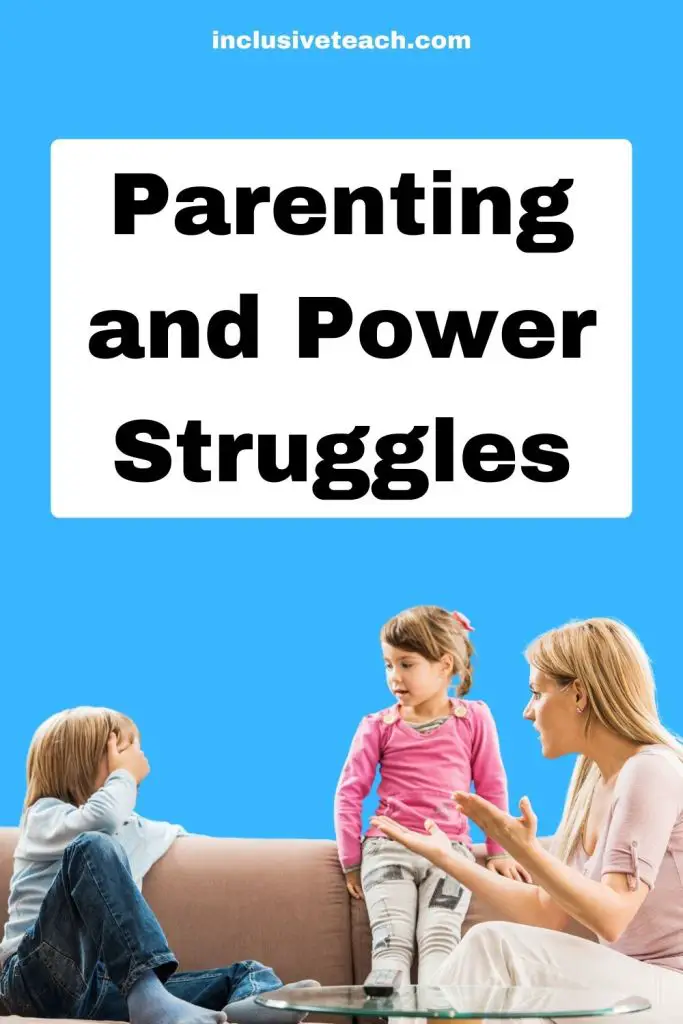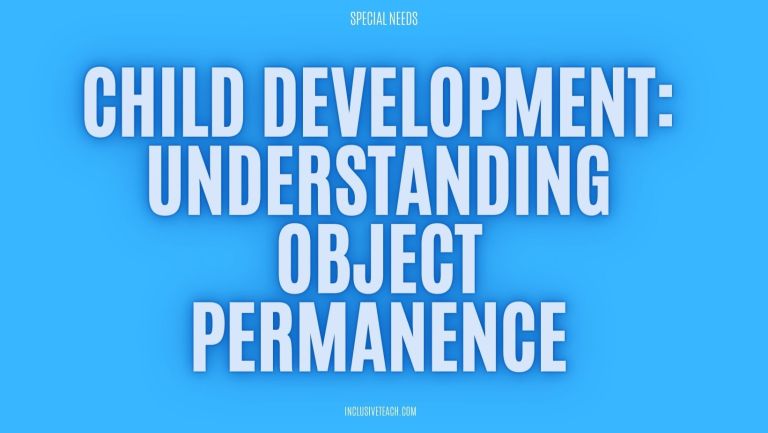Parenting and Power Struggles
Mastering the Art of Navigating Power Struggles with Children
I’ve witnessed countless power struggles between parents and their children unfold over the years. These battles of wills, fueled by a delicate interplay of developmental needs, emotional bonds, and the ever-shifting dynamics of authority and independence, are an unavoidable part of parenting.
However, rather than viewing these conflicts as obstacles, I encourage parents to embrace them as opportunities for growth, understanding, and strengthening the parent-child connection.
Power struggles can manifest in various ways, ranging from a toddler’s adamant refusal to put on their shoes before leaving the house to a teenager’s defiant rejection of curfew rules. These situations, seemingly innocuous at first glance, can quickly escalate into intense emotional battles, leaving both parents and children feeling frustrated, overwhelmed, and emotionally drained.
From a parent’s perspective, power struggles can evoke a whirlwind of emotions. The frustration of trying to reason with an unyielding child, the fear of losing control or authority, and the nagging self-doubt about whether their approach is effective can all contribute to a heightened emotional state. Parents may find themselves oscillating between anger and guilt, torn between enforcing boundaries and appropriate communication.
For instance, I recall working with a family where a simple request to clean up toys would often devolve into a heated argument, leaving the mother feeling helpless and inadequate. The emotional toll of these recurring power struggles was palpable, as she grappled with the weight of her parental responsibilities while simultaneously questioning her ability to guide her child effectively.
From the child’s perspective, power struggles can be equally emotionally charged. Children may feel misunderstood, and their desires and preferences dismissed or ignored. They may perceive parental rules and boundaries as constraints on their autonomy, fueling a sense of defiance and resistance. This internal struggle between craving independence and seeking parental approval can manifest in emotional outbursts, tantrums, or withdrawal.
I vividly remember a young boy, around eight years old, who would become inconsolable during power struggles with his parents over bedtime routines. His tears and frustration stemmed from a deep desire to assert his individuality and make his own choices, even in seemingly trivial matters. To him, these conflicts represented a battle for control and self-expression, one that he felt compelled to fight with every ounce of his being.
These power struggles while challenging, are natural and even necessary for a child’s healthy development. They represent a child’s innate drive to explore boundaries, test limits, and gradually gain autonomy within a supportive and nurturing environment. You as the parent need to be clear with what you will accept, and where the boundaries are. This is what children need.
Our role is not to eliminate power struggles entirely but rather to support children through these conflicts. By acknowledging and validating each party’s emotions, offering choices and open communication, we can transform these battles into opportunities for growth, understanding, and stronger parent-child bonds.

Unraveling the Roots of Power Struggles
As with all behaviours we need to understand the underlying drivers that fuel these conflicts. Here are 6 key factors that contribute to the emergence of power struggles:
- Developmental Milestones: As children grow and evolve, their natural desire for autonomy and independence blossoms, often manifesting in boundary-testing and assertive behaviour. These power struggles are an integral part of their developmental journey, as they learn to navigate rules, expectations, and self-expression.
- Emotional Bonds: The parent-child relationship is a profoundly emotional one, intricately woven with love, care, and a deep desire to protect and nurture. It’s this very emotional intensity that can fuel power struggles, as parents strive to ensure their children’s well-being while children seek to have their needs and desires met.
- Fear and Anxiety: Parenting is a journey fraught with uncertainties, and the fear of making decisions that could potentially harm a child’s safety, well-being, or future can lead to a tightening of control, inadvertently sparking power struggles.
- Communication Barriers: Breakdowns in communication, fueled by misunderstandings, ineffective listening, or a lack of age-appropriate explanations, can contribute to the escalation of conflicts between parents and children.
- Personality Dynamics: Every child is a unique individual, with their own temperament, strengths, and ways of interacting with the world. When these dynamic personalities clash with those of their parents, power struggles can arise from the clash of strong wills and differing perspectives.
- Sibling Rivalries: Sibling dynamics can also play a role in power struggles, with children vying for parental attention, favouritism, or a sense of fairness within the family unit.
Give a Child Control Within Your Boundaries Through Choices
One of the most effective strategies for navigating power struggles is the “two great choices” approach. This technique not only empowers children by offering them a sense of control but also helps parents maintain composure and avoid reactive responses in the heat of the moment.
When a power struggle arises, such as a child refusing to follow a household rule or engaging in a routine task, it can be challenging for parents to remain calm and think through appropriate solutions. However, by taking a moment to collect their thoughts and present their child with two reasonable choices, parents can diffuse tensions creating a more collaborative problem-solving approach.
An Example of Managing a Parent-Child Power Struggle
Imagine you have a 6-year-old daughter, Emma, who is resistant to getting ready for bed at her designated bedtime. As the evening routine approaches, Emma becomes engrossed in her toys or a book, and any attempt to transition her to bed is met with protests and power struggles.
In this scenario, you could implement the “two great choices” strategy as follows:
- State the problem matter-of-factly: “Emma, it’s 8 o’clock, which is your bedtime. I see you’re finding it tricky putting your toys away and getting ready for bed tonight.”
- Talk through your thought process: “I know how much you love playing, but we also need to make sure you get enough sleep to be ready for tomorrow. So, here are your two great choices: Option 1 is that you can put your toys away yourself and brush your teeth, and then I’ll read you an extra bedtime story. Option 2 is that I’ll help you put your toys away, but then we’ll go straight to brushing teeth without an extra story.”
- Follow through calmly: Regardless of Emma’s choice, follow through calmly and consistently. If she chooses Option 1, praise her for her cooperation and read the extra story as promised. If she chooses Option 2, gently assist her in putting away her toys without further negotiation or emotional outbursts.
By presenting Emma with two reasonable choices, you empower her to have a sense of control over the situation while still maintaining the necessary boundaries and routines. This approach provides a more collaborative problem-solving dynamic and can help diffuse power struggles before they escalate.
Additionally, by verbalising your thought process, you model healthy problem-solving skills and demonstrate respect for Emma’s perspective while still upholding your parental authority.
Practical Strategies for Navigating Power Struggles
Here are some key approaches that have proven invaluable:
- Validate Emotions: We did a course on emotion coaching, Before attempting to resolve a power struggle, it’s crucial to acknowledge and validate your child’s feelings, even if you disagree with their behaviour. This validation can lead to a sense of understanding and respect, creating a foundation for open communication and collaboration.
- Offer Choices: Whenever possible, empower your child by offering age-appropriate choices. This simple act creates a sense of control and autonomy, reducing the likelihood of power struggles arising from a perceived lack of agency.
- Embrace Positive Reinforcement: Rather than relying solely on punishment or consequences, focus on praising and encouraging desired behaviours. Positive reinforcement is a powerful tool that not only strengthens the parent-child bond but also incentivises positive actions.
- Remain Calm and Composed: Power struggles can be emotionally charged, but it’s essential to respond with composure and a level head. Take deep breaths, speak softly, and defuse tensions through your own calm demeanour.
- Seek Compromise and Collaboration: Whenever possible, involve your child in the decision-making process and strive to find mutually agreeable solutions. This collaborative approach leads to a sense of partnership and respect, laying the groundwork for effective conflict resolution.
- Establish Clear Boundaries: While compromise is important, it’s equally crucial to establish clear rules and consistent consequences. Explain the reasons behind these boundaries in an age-appropriate manner, fostering understanding and buy-in from your child.
- Respect Neurodiversity: Every child is unique, with their own strengths, needs, and ways of processing information. By respecting and accommodating these differences, you create an environment that nurtures their individuality and supports their growth.
- Model Emotional Intelligence: Children learn by example, and as a parent, you have the opportunity to model healthy ways of expressing and managing emotions. By demonstrating emotional intelligence, you equip your child with invaluable life skills.
- Prioritise Self-Care: Parenting is a demanding journey, and it’s essential to prioritise your own well-being. Rested, resilient, and emotionally grounded parents are better equipped to navigate power struggles with patience and wisdom.
- Seek Professional Support: If power struggles persist or escalate despite your best efforts, don’t hesitate to seek guidance from a therapist, parenting coach, or other professional resources. An outside perspective can provide invaluable insights and strategies tailored to your unique family dynamic.
Addressing Common Concerns
As well as dealing with my own children and struggling myself at times, I often encounter parents grappling with specific challenges related to power struggles. Here are some frequently asked questions and practical responses:
Q: How do I avoid power struggles with a strong-willed child?
A: Embrace your child’s assertive nature and channel that energy constructively. Offer choices whenever possible, use positive reinforcement, and seek mutually agreeable compromises. Strong-willed children thrive when given control and autonomy within reasonable boundaries.
Q: What if my child refuses to listen or follow rules?
A: Remain calm and consistent. Explain the reasons behind the rules and the natural consequences of not following them. Involve your child in setting age-appropriate rules and expectations to foster buy-in and understanding.
Q: How can I prevent sibling rivalry from escalating into power struggles?
A: With 5 children between us this comes up all the time. Treat all children fairly and avoid favouritism, real or perceived. Encourage open communication and problem-solving skills among siblings. Provide individual attention and celebrate each child’s unique strengths to promote a sense of equity and respect within the family unit.
Q: Should I punish my child during a power struggle?
A: Punishment can often escalate power struggles and damage the parent-child relationship. Instead, focus on positive reinforcement, natural consequences, and teaching problem-solving skills. Discipline should be age-appropriate, consistent, and rooted in empathy and understanding.
Co-Parenting and Power Struggles
As we are a blended family co-parenting can present challenges for 3 of our 5 children, especially in relation to boundaries and expectations. Communication is the only real answer here.
Q: How can co-parents present a united front when dealing with power struggles?
A: It’s essential for co-parents to have open and honest conversations about their parenting philosophies, discipline strategies, and approaches to handling power struggles. Establish consistent rules, consequences, and approaches that both parents agree to follow. Present a unified front when addressing conflicts with your child, avoiding contradictory messages or undermining each other’s authority.
Q: What if co-parents have different parenting styles that contribute to power struggles?
A: Co-parents often bring different perspectives and parenting styles to the table, which can lead to power struggles with children. Have open discussions to understand each other’s approaches and find common ground. Compromise and be willing to adjust your styles to find a middle ground that works for your family dynamic. Seek professional guidance if needed to help align your parenting strategies.
Q: How can co-parents avoid power struggles between themselves when addressing a child’s behavior?
A: Avoid engaging in power struggles with your co-parent in front of your child, as this can undermine your authority and exacerbate the situation. If you disagree with your co-parent’s approach, discuss it privately and work towards a resolution before addressing your child. Present a united front, even if you need to revisit the issue later.
Q: What if one co-parent is more permissive, leading to power struggles with the stricter parent?
A: Differing levels of permissiveness can indeed contribute to power struggles. The more permissive parent should strive to understand the reasoning behind the stricter parent’s rules and boundaries. Likewise, the stricter parent should be open to finding reasonable compromises and offering age-appropriate choices to foster a sense of autonomy. Seek professional guidance if needed to align your approaches.
Q: How can co-parents handle power struggles related to custody arrangements or visitation schedules?
A: Custody and visitation schedules can be a source of power struggles, especially for children adjusting to transitions between households. Maintain open communication with your co-parent and involve your child in age-appropriate discussions about the schedule. Remain consistent with routines and rules across both households to provide stability and minimize power struggles related to transitions.
By maintaining open communication, seeking compromises, and presenting a united front, co-parents can more effectively navigate power struggles with their children. Remember, consistency, empathy, and a commitment to understanding each other’s perspectives are key to fostering a harmonious co-parenting dynamic and addressing power struggles in a constructive manner.







